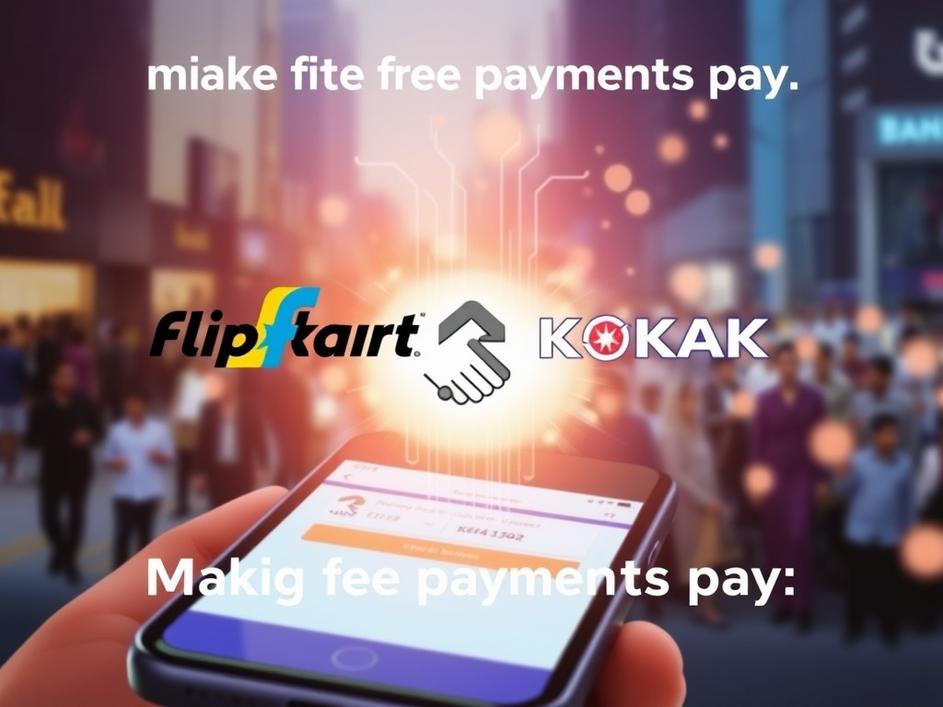


We are a digital agency helping businesses develop immersive, engaging, and user-focused web, app, and software solutions.
2310 Mira Vista Ave
Montrose, CA 91020
2500+ reviews based on client feedback

What's Included?
ToggleIndia’s digital payment story is nothing short of amazing. Over the last few years, a system called UPI (Unified Payments Interface) has changed how millions of people buy things and send money. Imagine sending money to a friend or paying for your groceries with just a few taps on your phone, instantly, and without any fees. That’s UPI. It’s made money move so much easier and faster for everyone, from big businesses to the smallest street vendors. It’s a huge success story for the country, showing how technology can really help ordinary people. But here’s the interesting part: while it’s been fantastic for users, making money from these free transactions has been a tough puzzle for the companies behind the scenes. They handle billions of transactions, but because they’re free, the companies don’t directly earn much from them. This has led to a big question: how do you build a sustainable business when your main service is given away for nothing? Well, a new move from Flipkart’s finance arm, Super.money, teaming up with Kotak Bank’s digital offering, Kotak811, looks like it might have some answers to that very complex question. They’re trying to figure out how to make this incredibly popular, free system also work for their bottom line, not just for users.
The beauty of UPI is its simplicity and its cost – or lack thereof. For individuals and small businesses, the fact that you don’t pay extra fees to send or receive money is a huge win. It’s helped bring so many people into the digital economy who might have otherwise stuck with cash. This low barrier to entry is why it’s exploded in popularity. But for the financial technology companies, or “fintechs,” that build and maintain the apps and systems running on UPI, this “free” model creates a unique problem. They invest heavily in technology, security, and customer support, but the core service doesn’t generate direct income. Think about it: if every transaction is free, how do you pay your staff? How do you keep improving your platform? Most businesses need to make money from what they do. So, these companies have been looking for creative ways to offer other services that people might be willing to pay for, or to connect users with other businesses that do generate revenue. It’s like a free newspaper that relies on ads to stay in business. The challenge is finding those secondary revenue streams that fit naturally with the payment experience without making the user feel like the “free” service is being taken away.
This is where Super.money comes in with their plan. Flipkart, a giant in Indian e-commerce, already has millions of customers who trust them and use their services daily. Super.money, as their finance arm, isn’t just looking at the money changing hands; they’re looking at what people *do* with that money and what financial needs they have around it. The real aim here isn’t to charge for UPI payments directly. Instead, it’s about offering other valuable financial products and services to users who are already active on their platforms. Imagine you’re a small business owner who uses UPI for all your daily sales. Super.money might look at your transaction history and offer you a small, quick loan to buy more inventory, or perhaps insurance tailored for your business. For an individual, it could be access to credit, ways to save money, or even investment options, all seamlessly integrated into the apps they already use for payments and shopping. It’s about using the rich data from payment behavior – what people buy, how often, how much – to offer them financial solutions that are relevant and timely. This way, the UPI payment itself remains free, but the added services become a source of income.
The partnership with Kotak Bank, specifically their digital arm Kotak811, is a really smart move for Super.money. Banks bring something very important to the table: trust, regulatory knowledge, and the actual infrastructure to handle complex financial products. While fintechs are great at building user-friendly apps and fast services, banks have the deep experience in managing money, understanding risks, and following all the rules set by the government. Kotak811, being a digital-first bank offering, already understands how to connect with customers online. So, by working together, Super.money gets to tap into Kotak’s banking license, their financial expertise, and their ability to actually lend money or offer proper savings accounts. This means Super.money doesn’t have to build all that complex banking stuff from scratch. Instead, they can focus on their strengths: creating a great user experience and figuring out what financial products their users really need, while Kotak handles the serious banking work in the background. It’s a win-win: Super.money gets to expand its financial offerings, and Kotak gets access to a huge, active user base through Flipkart’s ecosystem.
This partnership isn’t just about two companies; it has bigger implications for India’s entire digital economy. If Super.money and Kotak are successful, it could set a new standard for how fintechs in India operate. It shows a path where the core payment service can remain free for users, while businesses find ways to create value and earn revenue around it. This could lead to a wave of innovation. Other companies might start looking at their payment data in new ways, finding different financial services they can offer. It also means that more people, especially those who might not have had easy access to traditional banking services, could suddenly find personalized financial products available right on their phone. Imagine a street vendor who previously had no access to formal credit getting a small loan based on their UPI transaction history. That’s powerful. It could help small businesses grow and individuals better manage their money. But it also means companies will need to be very careful about how they use customer data and ensure privacy and security are top-notch. Building trust is key in finance, and even more so when sensitive data is involved.
From my perspective, this move is a really intelligent step forward. India’s UPI success has been amazing, but the next big challenge was always about building sustainable businesses on top of it. Simply offering free payments won’t keep the lights on forever. What Super.money and Kotak are doing is recognizing that payments are just one part of a user’s financial life. By integrating other useful financial services, they are creating a more complete financial ecosystem. It’s not about making UPI itself less free, but about adding value that users might choose to pay for. This could push the entire industry towards more embedded finance, where financial services are seamlessly woven into the apps and experiences people already use. The trick will be to make these additional services genuinely helpful, easy to understand, and fairly priced. If they can get that balance right, this partnership could truly show the way for how “free” digital payments can eventually pay off, not just for the companies, but also by empowering more people with better financial tools.
As this partnership unfolds, it will be interesting to watch a few things. First, how do users react to these integrated financial products? Will they see them as helpful additions or as unwanted sales pitches? Second, how will other fintech players and banks respond? Will they try to copy this model, leading to more competition and perhaps even better products for consumers? And finally, what role will regulations play? As more financial services become intertwined with everyday apps, governments will likely pay close attention to ensure consumer protection and fair practices. This collaboration isn’t just about two companies; it’s a big experiment in building a profitable future on the back of India’s free digital payment revolution. If it works, it could truly change the landscape, making financial tools more accessible and relevant for millions, all while proving that even “free” can, in the right context, become a powerful engine for growth and innovation.



Comments are closed